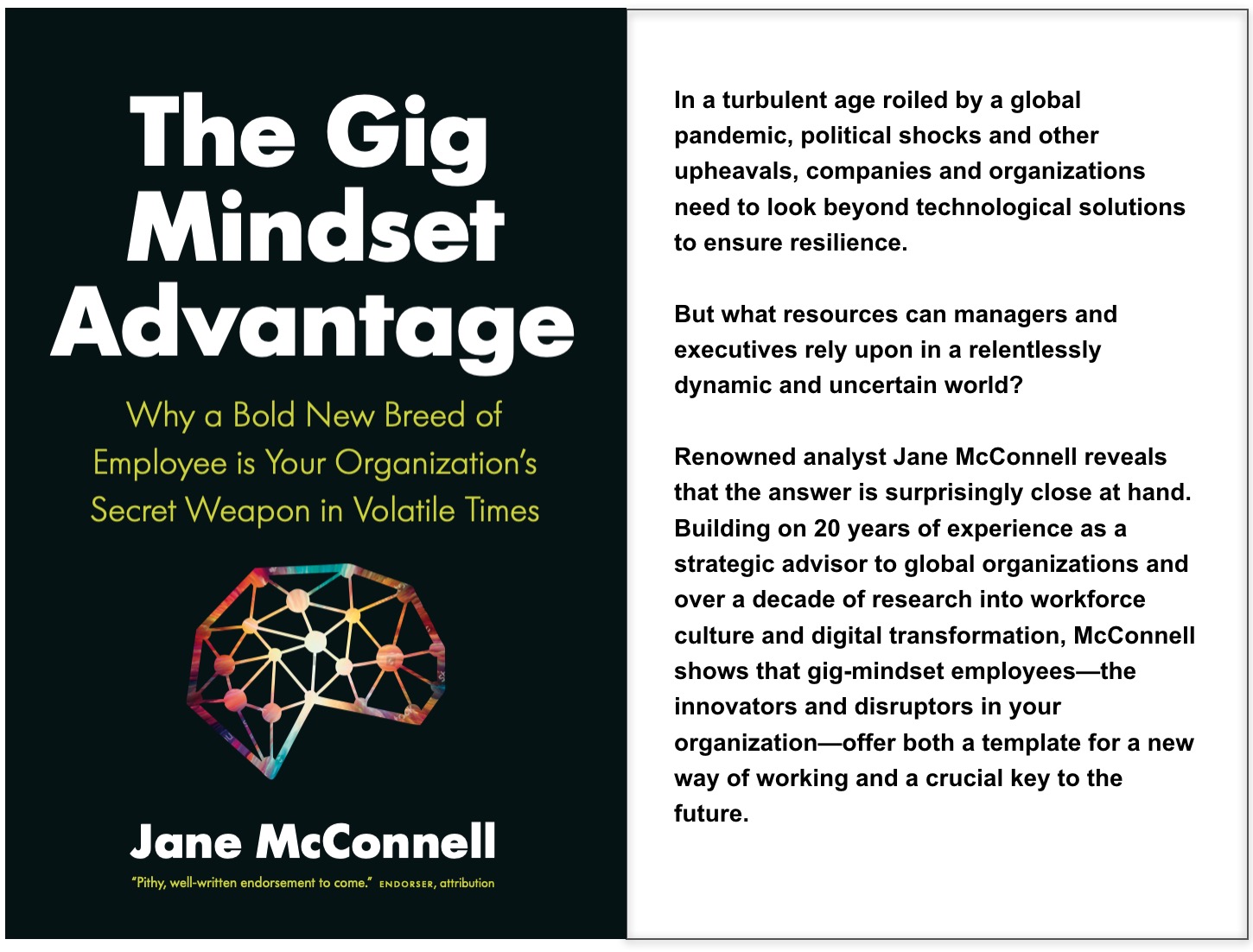My Wakeup Call


The term “gig mindset” refers to the attitudes and behaviors of people who, even though they are salaried employees in an organization, approach their work as if they were independent freelancers. Their attitudes and behaviors contrast with those of salaried people who work with what we might call the “traditional mindset”, with an approach to work influenced by defined roles, hierarchy and established procedures.
Since 1998, I have advised organizations on strategies and actions steps for their internal digital work environments. I was always fascinated (and discouraged!) by how long it took to move things forward. In most cases, we made progress, the client and myself, but it was usually hard going. Yet, in nearly every organization I worked with, there was at least one person, sometimes a few more, with whom I felt a shared passion to shake things up, to open eyes and minds to new possibilities. gradually I realized that these rare people saw their jobs much as I, the external freelancer, saw mine. I coined the term gig mindset to describe these people.
I decided to look closer. How did it compare to a traditional mindset? Is it risky? Is it an opportunity? How does it impact people and organizations? The outcome of this research is a book that will be published early 2021.
Even before starting my research, it was clear to me that organizations did not welcome the gig mindset, and often actively resisted it. I talked about the gig mindset at a conference a couple years ago and one of the first people to come up to me afterwards said:
“You’re the first person to understand how I feel at work. Sometimes I’m so discouraged I think I should quit.”
In contrast to this, a senior director asked me this question:
“How can I get this inside my organization?”
On one hand we have a discouraged gig mindsetter and on the other a senior director who wants to cultivate a gig mindset work culture.
Nothing matches your request, please try again with a different search term.